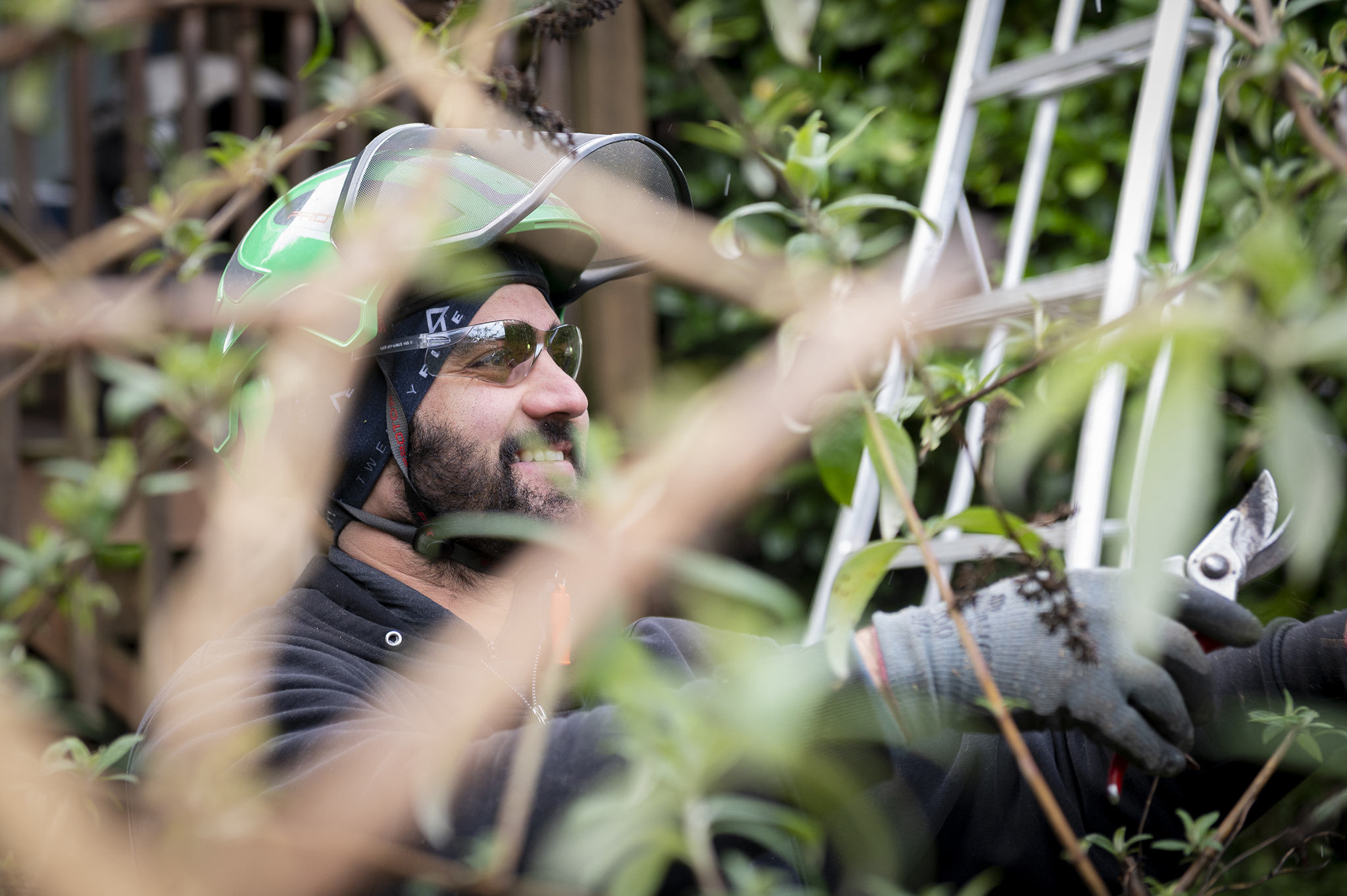For anyone who wants to grow fruit trees, whether apple trees, pear, plum, cherry, apricot, or other types of fruit trees, understanding why the dormant season matters is key to successful fruit growing and strong fruit production. In colder-climate regions like Vancouver, fruit trees rely on that pause in growth to develop a healthy root system and allow the rootstock and graft union time to settle before spring’s push to blossom and produce fruit. The dormant period is also the time when you can prepare the soil around the planting hole, enrich it with compost or fertilizer, and mulch around the roots without risking suffocation around the trunk. It’s an ideal moment to prune or shape the tree while it’s bare, remove weeds or pests, and plan for proper pollination and orchard layout. By choosing the best cultivar, planting carefully, whether a full-size, semi-dwarf, or dwarf variety, and ensuring your new fruit tree has everything it needs in the dormant season (water, nutrients, good hardiness prep), you greatly improve chances for healthy growth, robust blossom, and an abundant harvest when the growing season returns.
If you want a fruit tree flourishing in your home garden, the first steps don’t have to be as complicated as you might think. Opting for the best trees that already thrive in the city can spell success for your home orchard with just the proper attention and care. This guide covers five beginner options and tips for building up a healthy harvest from your fruit tree.
Why Choose Fruit Trees
Fruit trees may require more care than non-fruit trees, but this extra upkeep also equates to additional benefits for your Vancouver home. For one, having your produce right outside your home gives you a frequent source of healthy food free of preservatives. It can also save you money compared to regularly buying fruits from the grocery store. Does it bear a lot of fruit? Sharing your tree’s yield also builds priceless relationships within your community. The rich colours add flair to your outdoor spaces as your tree produces flowers and fruits. It’s even a pride to see the ripe produce hanging from your prized tree, reflecting the amount of work and care invested into it.
5 Best Fruit Trees for Beginners in Vancouver
Vancouver’s temperate climate makes it ideal for many fruit trees to grow without much friction. Don’t just pick your favourite, though. It’s best to understand each tree’s needs and plant the one that fits your property perfectly.
Here are five low-maintenance fruit trees we highly recommend for your Vancouver home.
1. Apple Trees
Crisp and refreshing, apples are a staple in fruit baskets and easy additions to home gardens. Fun fact, the west side of Vancouver is home to a wide variety of apples that are no longer available commercially. Apple trees can generally prosper in colder climates and survive with minimal maintenance. There are different varieties of apple trees to choose from. If you have a small garden, the dwarf tree varieties can save you space, while self-fertile trees can give you fruits without pollinating with nearby trees. Mature apple trees can grow from 8 to 30 feet, and the ideal combination of well-drained soil and full sun fuels their growth.

Give them the right care, and you can enjoy their delicious fruits once harvest season comes in late summer or fall.
2. Pear Trees
Pears are not only tasty but also rich in nutrients. Planting and maintaining them shouldn’t be a challenge, especially the low-maintenance Asian pear. They’re cold-hardy with decent disease resistance. You just have to look out for fire blight that can strike certain varieties. Most pear trees are not self-pollinating, so having a second tree or even more is a good idea. While it’s double the effort, maintaining them is still easier than other trees that bear fruit. Plant them in fertile, well-drained soil where they can get full sun and avoid the cold winds of winter. They usually grow up to 20 feet and bear their fantastic pears in summer or fall.
3. Cherry Trees
Cherries symbolize indulgence, and these bright red fruits are a tempting sight in any garden. Cherry trees are usually categorized into two types. Sweet cherries can be eaten immediately, while sour cherries are best for baking. Whichever you prefer, growing them at home is very manageable. Mature cherry trees can grow up to 30 feet, while dwarf fruit tree varieties remain at 3 to 4 feet. They thrive under full sun, on well-drained soil, with moderate maintenance for bountiful harvests of tart cherries.

4. Plum Trees
Sweet and juicy plums can also be grown in your Vancouver yard. European plum varieties that self-pollinate are even more convenient for small outdoor spaces. Meanwhile, American plum trees may need companies to pollinate them, but they’re harder than their European counterparts. Another cross-pollinating variety, the Japanese plum, is known for its bigger and juicier fruits. A plum tree needs rich, well-draining soil and full sun to thrive. Plums’ fruit production is generous, and you can revel in handfuls of these mouthwatering fruits in every harvest.

5. Common Fig Trees
The local climate is also ideal for growing plump figs that burst with flavours in every bite. They’re adaptable, resilient, and fast-growing for a fruit tree. They also self-pollinate, so you can expect their sweet fruits from a single fig tree. This kind of fruit tree can be as tall as 20 feet in its maturity. Dwarf varieties can be as small as 5 feet, allowing you to shelter them indoors during harsh winters. To reach their full potential, fig trees prefer full sun and well-drained soil.
Meet their needs and enjoy the fig tree’s quick growth and fast payoff in produce.
Tips on Picking and Planting Beginner-Friendly Fruit Trees
Even after knowing the best fruit trees that grow locally, it’s best to understand more about fruit tree care before you head to your nearest garden center.
Get to Know Rootstocks
It’s a common practice in fruit tree nurseries to use rootstocks. These contain the established roots of a stem with a predetermined size and better compatibility with your area. The scion or the upper part of the tree is then grafted into these root systems, producing your preferred fruit. For example, using a dwarfing rootstock on the usually tall apple trees will keep your sapling from growing to its full size. The rootstock also improves the tree’s growth rate, disease resistance, and overall health.
Consider Environmental Conditions
Take time to understand the external factors that will affect the growth of your chosen fruit tree. This means familiarizing yourself with the area’s USDA zone hardiness, soil type, sunlight, and the chill hours in winter that your tree will need to produce fruit properly come spring. Vancouver often has temperamental weather in early Spring. Fluctuating weather temperatures can lead to many plant health issues if not monitored, including frost damage, fungal leaf spots and root-borne pathogens.
Commit to Proper Tree Care
After planting the fruit tree in place, follow the best practices in tree care to ensure its long and healthy life. Watering regularly is a no-brainer; make sure to adjust accordingly during warmer climates or wet seasons. You must also regularly prune fruit trees to achieve their ideal growth and production. This is usually done in late winter or early spring, priming the tree’s shape for when new growth arrives.

Below are additional measures that can benefit the welfare of your fruit tree.
- Mulching maintains soil moisture, prevents weed growth, and adds nutrition to the soil.
- Placing stakes will stabilize the tree if it’s exposed to strong winds.
- Fertilizing to boost tree health and support fruit production.
- Proactive pest control measures to protect your tree.
- Wrapping the tree with burlap in the winter to shield it from potential frost damage.
Hire Experts for Fruit Tree Planting
Planting fruit trees shouldn’t be intimidating, especially with an ISA-certified arborist to assist you.
Devine Arboricultural Solutions provides professional tree services in Vancouver, British Columbia, including arborist consultations and tree planting.
Vancouver’s local tree experts will help you make informed decisions, meet your tree care needs, and ensure that all the efforts for your ideal home garden will come to fruition.
